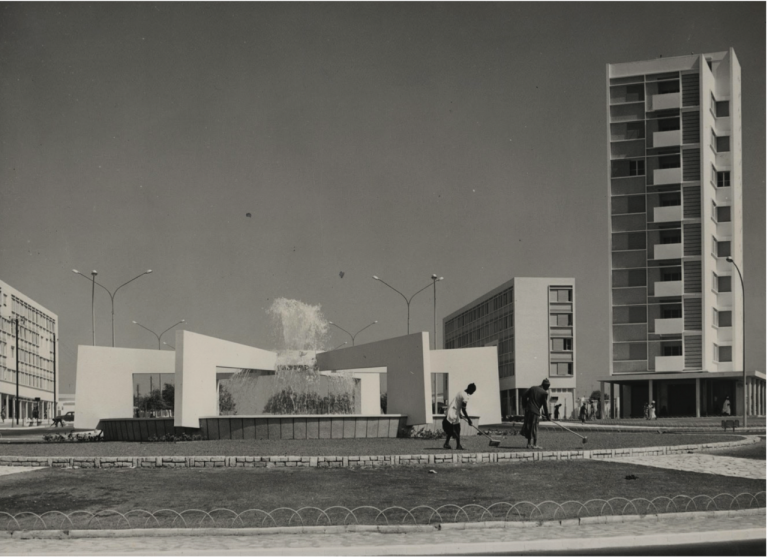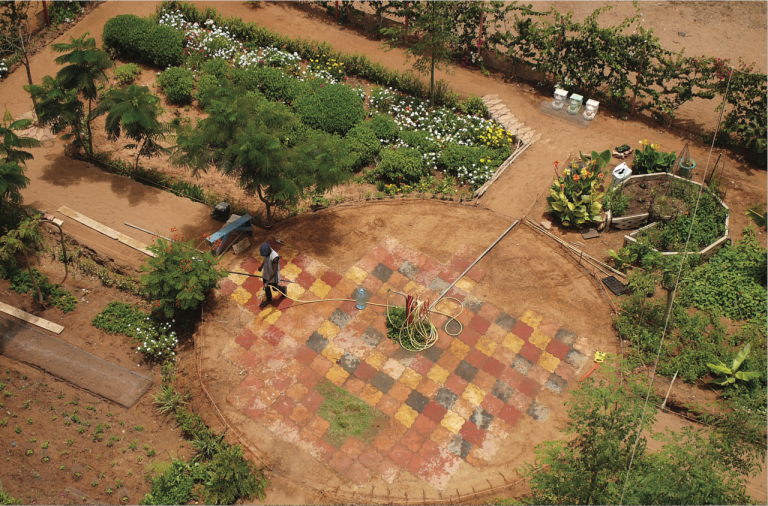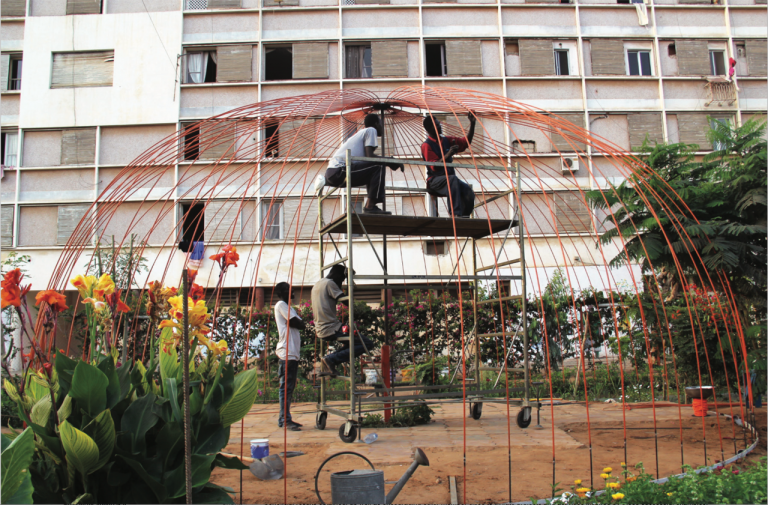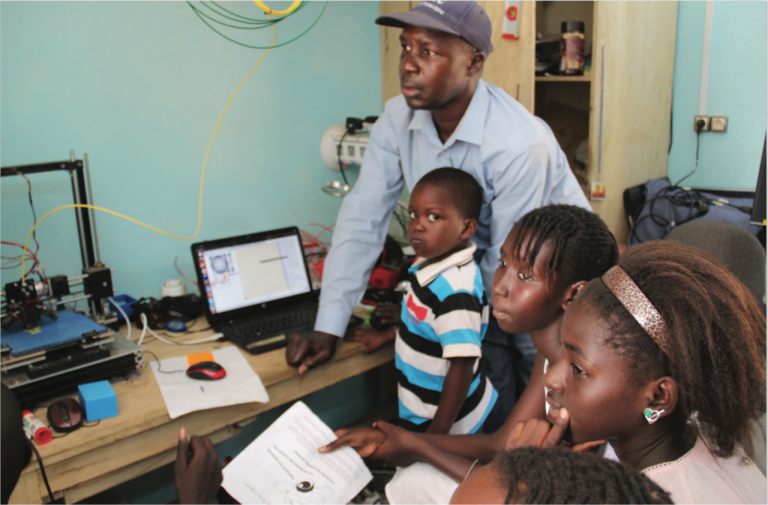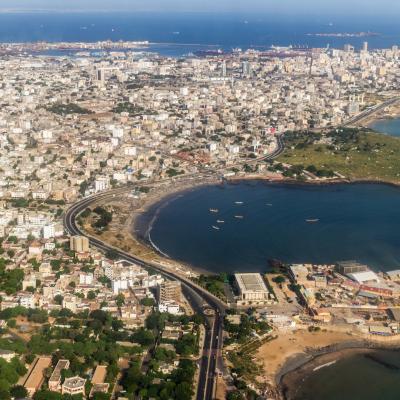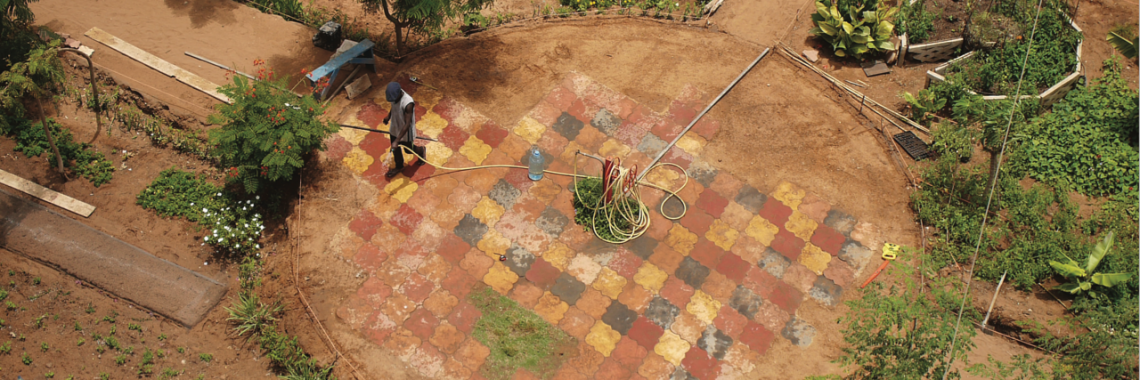
School of Commons
Background
Kër Thiossane created the project of the School of Commons, which is the first artistic, educational and transdisciplinary laboratory related to digital technologies practices and new communication tools in West Africa. This is a local exchange platform of hardware, software and skills capable of offering support for cultural, educational and citizen projects in Africa.
Following the Social Forum in Dakar in 2011, Ker Thiossane initiated a reform around the common goods. While the Common movement began elsewhere to create schools inspired by the model of “Popular Universities,” Kër Thiossane opened a school in Senegal in 2013, where the In-Common is experienced daily, in neighbourhoods, around a shared garden and a Fablab pole, in the heart of the public space.
The project of the School of Commons comes from the following observations: a crisis of urban space in Dakar linked to neighbourhood disputes, withdraws of collective living spaces, and a public discredited space with poor infrastructure. It is based on the idea that collective creativity and citizens can counter these realities and suggests a dynamic of creative appropriation and domestication of the city, with its inhabitants to make it more hospitable, friendly and safe. This is making the city a place of experimentation, and it is generating new opportunities to consider the urban ongoing creation.
Objectives
There are six specific objectives to the project of the School of Commons:
- Make culture a mark of recognition by policies, residents and their ability to act in defense of common goods throughout their neighbourhood.
- Promote art as a driving force for the involvement of residents in the management of their city.
- Contribute to training, structuring and promoting young artists from Senegal.
- Experience self-management of a common-space, through culture.
- Train young social mediators by implementing civic dimension to projects around the common good, through art and cultural activities.
- Democratize digital savoir-faire, to meet and collaborate with researchers, craftsmen, developers and makers.
Implementation
The process can be divided in different phases of the project. First, the preliminary phase involves outreach, listening, information and validation work of the project in the long term.
Then, the second phase is the construction of a "water jet" artistic garden. This phase also includes the co-drafting a charter of use and a gradual opening to the public.
Thereafter, the process includes the opening of Fablab Defko Ak Nieup (Do With Others), an open space for public school students, craftsmen and all those who wish to learn the use of digital manufacturing tools.
Another project is the organization of a digital arts festival, which is organized between the two spaces. This project has had five editions since 2008 including the latest, in 2016, with the assistance of Dakar UNESCO Creative City.
The fifth phase is the opening, in collaboration with the city, of a municipal Fablab, an organization of residencies and youth workshops.
Finally, the last two initiatives are the opening of a learning center dedicated to green professions near the artistic garden and the participatory construction of a playground.
Results
Twenty training and creation workshops on the appropriation of digital technologies combining various profiles (artists, researchers, craftsmen and residents) were organized.
In addition, an abandoned space was, with the support of the people, turned into a public garden. A community consisting of various profiles and skills was formed around the project of the School of Commons, which promotes many initiatives across not only the SICAP neighbourhood, but also in Dakar as a whole.
Four job positions were created (landscape gardener, Fablab manager, Fablab monitor, Open Source developer).
